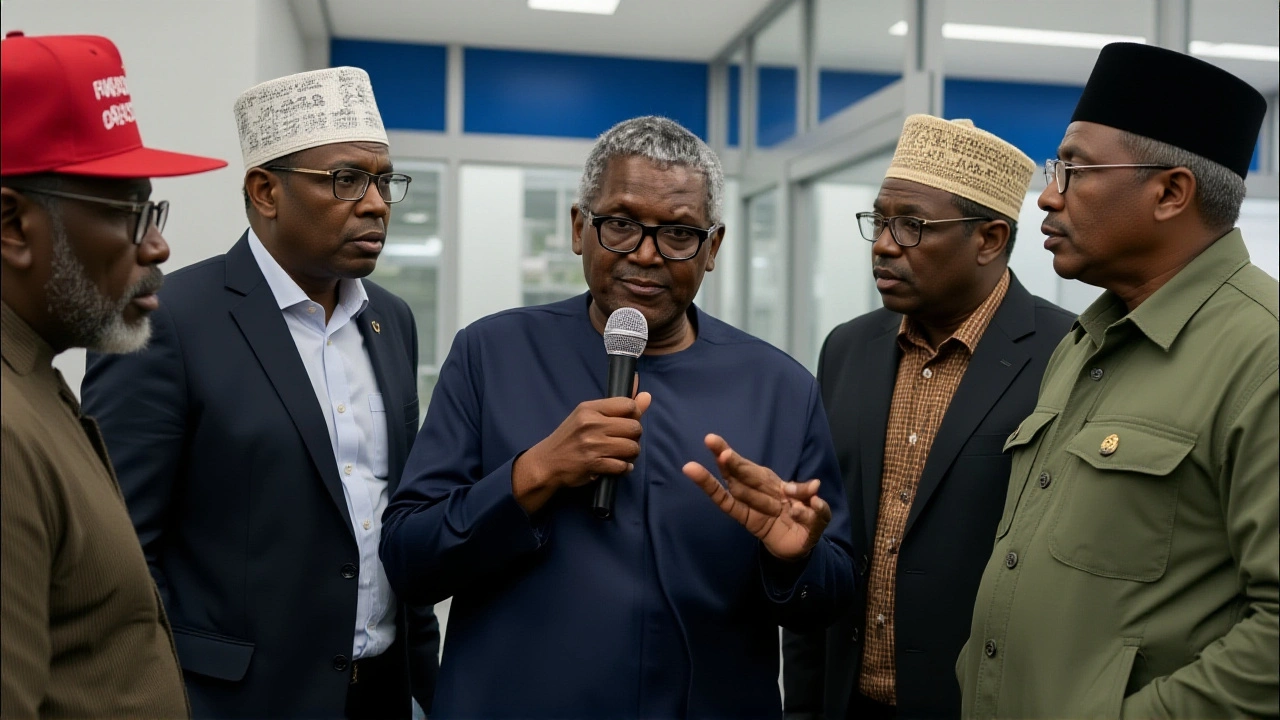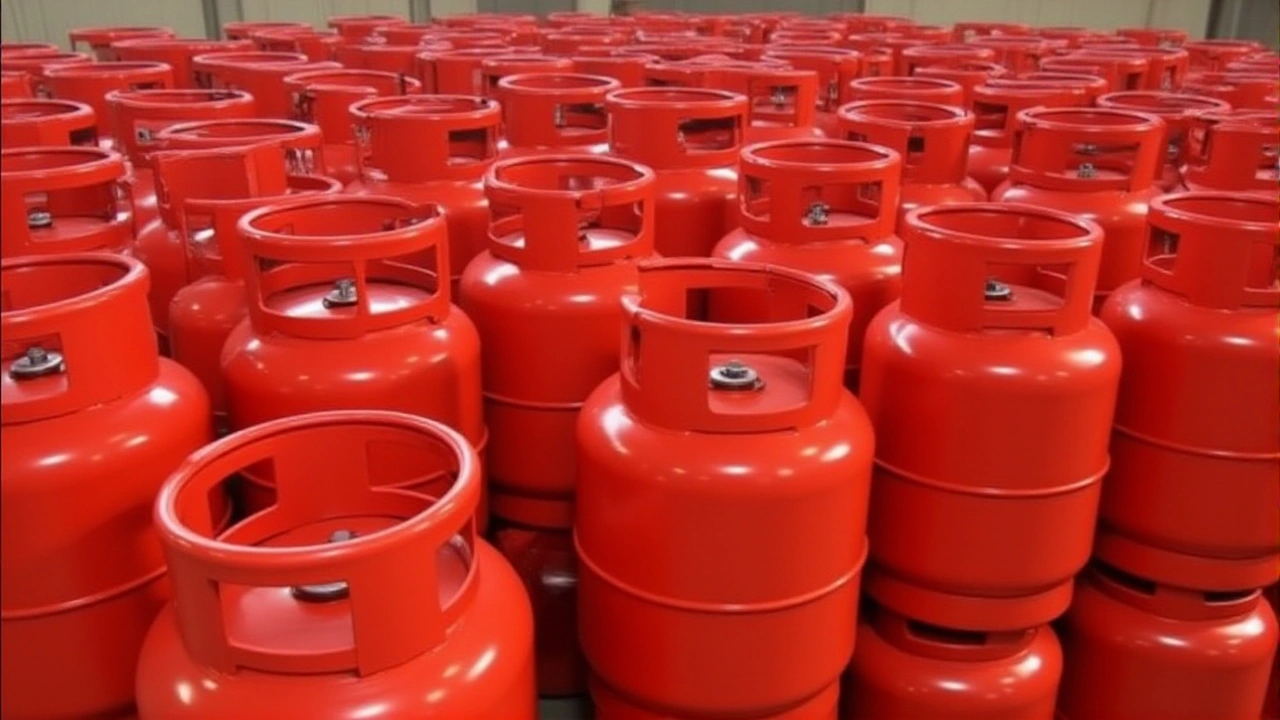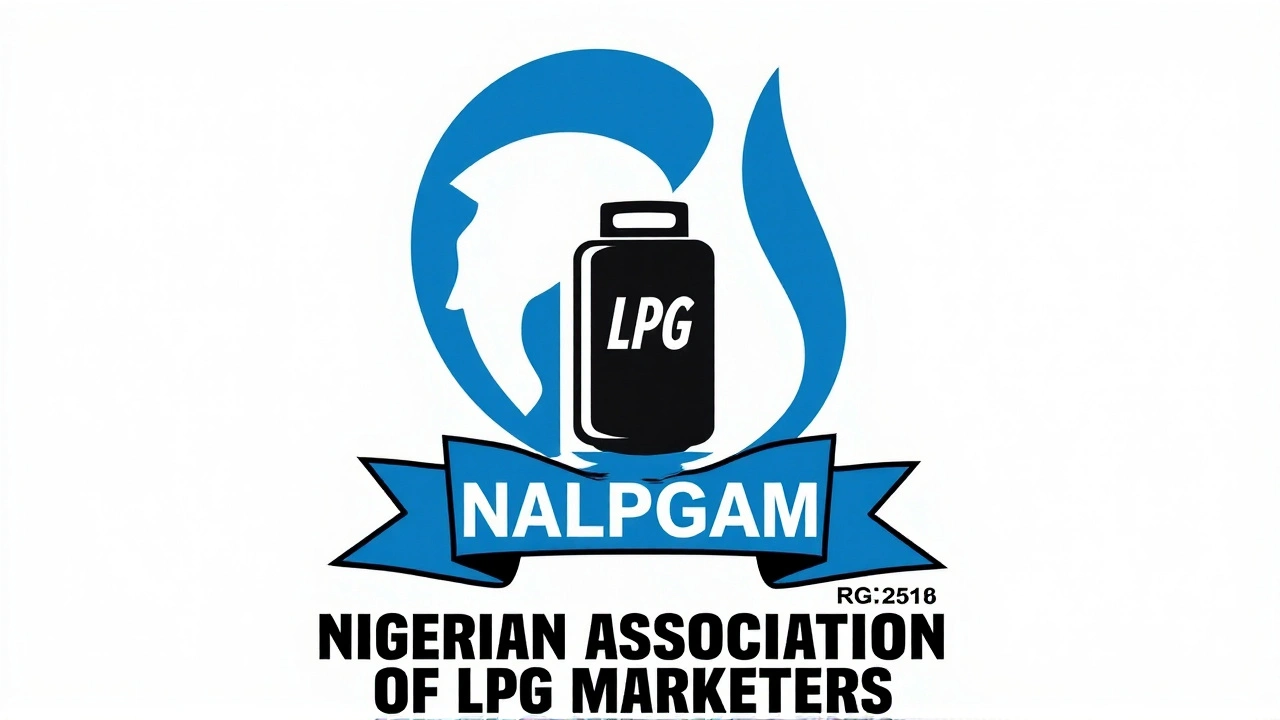
When Aliko Dangote, President of Dangote Group announced on Monday that his company will start selling LPG directly to Nigerians, the move shakes up a market that has been mired in high prices and distributor resistance. The declaration came during a tour of the Dangote Refinery located in Lekki, Lagos, Nigeria. With cooking‑gas prices hovering between N1,000 and N1,300 per kilogram, many households still rely on firewood or kerosene, making the billionaire’s plan a potentially life‑changing intervention.
Background: A Troubled LPG Market
For years, Nigeria’s LPG sector has been plagued by a fragmented supply chain. Importers bring in cylinders, local marketers retail them, and a handful of distributors control the bulk‑depot prices. According to the Energy Commission, annual LPG consumption in the country is about 1.2 million tonnes, yet domestic production barely covered 30 % of that in 2023. The price gap between ex‑depot and retail levels often exceeds N200 per kilogram, leaving low‑income families priced out of cleaner fuel.
Compounding the issue, a three‑day strike at the Dangote Refinery in early June halted both gasoline and LPG output, sending prices soaring in the weeks that followed. During that period, the average LPG price doubled, igniting public outcry and prompting the government to warn of a looming energy crisis.
Direct‑Sale Plan Unveiled at the Lekki Refinery
Addressing members of the Lagos Business School CGEO Africa program, Dangote explained that the refinery now churns out roughly 22,000 tonnes of LPG each day – a figure that dwarfs the nation’s total domestic output a year ago. "We are producing enough to meet a sizable share of the local market," he said, emphasizing the firm’s commitment to lower prices.
He warned that if existing distributors fail to cut their margins, the group will bypass them entirely, delivering cylinders straight from the plant to retail outlets and, eventually, to consumers’ doorsteps. The proposed model mirrors the vertical‑integration strategy the refinery has already employed for diesel and aviation fuel.
Marketers React: Monopoly Fears Surface
The announcement sparked an immediate backlash. On Monday, a coalition of LPG marketers gathered outside the refinery gates, brandishing placards that read “No Monopoly!” and “Protect Our Jobs.” Their spokesperson, Chidi Okonkwo, argued that a single supplier could dictate terms, inflate prices once competition is eliminated, and jeopardize the livelihoods of thousands of small‑scale traders who depend on the distribution network.
Industry analysts, however, note that Dangote’s pricing history suggests otherwise. Since the strike, the refinery’s ex‑depot price fell from N810 to N760 per kilogram – a reduction of N50, or roughly 6 %. If the trend continues, consumers could see savings of up to N200 per kilogram compared with the current market average.

Price Cuts and Immediate Consumer Impact
Early adopters in Lagos reported that the new cylinders, sold directly by the refinery’s logistics arm, arrived with a clear price tag of N760 per kilogram. For a typical family that uses three cylinders a month, that translates to a monthly saving of about N1,500 – money that could be redirected to food or school fees.
Meanwhile, the Nigerian Petroleum Regulatory Authority (NPRA) has pledged to monitor the rollout, ensuring that the direct‑sale scheme does not breach anti‑trust regulations. The regulator’s deputy director, Mrs. Aisha Bello, said, "We will work closely with Dangote Group to safeguard competition while encouraging price‑friendly initiatives."
Broader Implications for Nigeria’s Energy Landscape
Beyond cooking gas, Dangote’s plan includes direct distribution of petrol, diesel, and aviation fuel. If successful, the model could reshape Nigeria’s entire fuel supply chain, reducing the country’s dependence on imported refined products and curbing the chronic fuel‑shortage cycles that have plagued the nation for decades.
Economists point out that a more transparent pricing structure could improve fiscal stability. Lower fuel costs mean reduced transportation expenses for goods, potentially lowering inflationary pressures. Moreover, a shift from firewood to LPG would yield public‑health benefits, cutting indoor air‑pollution‑related illnesses by an estimated 12 % according to a 2022 World Bank study.
Critics, however, caution that any single entity’s dominance carries risks. They argue that without robust oversight, price‑setting power could revert to the top, especially if the refinery’s production capacity expands beyond current levels.

What Comes Next?
Dangote has set a tentative rollout timeline: pilot distribution will begin in Lagos and its suburbs within the next two weeks, followed by a phased expansion to other major cities such as Kano, Abuja, and Port Harcourt by the end of the quarter. The company says it will invest an additional $150 million in logistics, including a fleet of tanker trucks and a digital platform for order tracking.
Stakeholders are watching closely. If the initiative delivers on its promise of cheaper, reliable LPG, it could become a template for other African nations wrestling with similar energy‑access challenges.
Frequently Asked Questions
How will direct LPG sales affect Nigerian household budgets?
With the refinery’s ex‑depot price set at N760 per kilogram, families using three cylinders a month could save roughly N1,500 compared with the market average of N1,000‑N1,300. Those savings add up over a year, freeing up cash for food, education or healthcare expenses.
What are the current LPG prices across Nigeria?
As of early October 2025, retail LPG prices range from N1,000 to N1,300 per kilogram, depending on location and distributor markup. The refinery’s direct‑sale price of N760 represents a significant discount, though availability may initially be limited to major urban centres.
Who are the main marketers opposing the plan?
The opposition is led by the Nigerian LPG Marketers Association, which represents dozens of importers and local distributors. Their spokesperson, Chidi Okonkwo, argues that a single supplier could erode competition and threaten the livelihoods of thousands of small‑scale traders.
How much LPG does the Dangote Refinery actually produce?
The refinery’s latest operational report cites a daily LPG output of about 22,000 tonnes, enough to supply roughly 8 % of Nigeria’s total annual LPG consumption. Production has been ramping up since the plant reached full capacity in mid‑2025.
Could the direct‑sale model create a monopoly?
Regulators say they will monitor pricing and market share closely. While Dangote’s scale gives it considerable influence, competition could still arise from other domestic producers and imported LPG, especially if the government encourages new entrants.
Comments (13)
-
Suresh Chandra Sharma October 8, 2025
Hey folks, just wanted to break down why Dangote's direct LPG move could actually matter for everyday Nigerians. The current retail price sits around N1,200 per kg, which means a family using three cylinders a month is dropping about N3,600 on their bill. If Dangote can keep it at N760 as they claim, that's a solid N1,300‑N1,500 saving each month – cash that could go toward food or school fees. Also, cutting out the middle‑men should shrink the markup gap that’s been inflating prices for years. It’s definitely a step in the right direction, though we’ll have to watch for any sneaky price hikes later on.
-
Abhishek Saini October 9, 2025
Totally agree with u Suresh! This could be a game changer for many families. Lets hope Dangote sticks to the promised pricing.
-
Shivam Kuchhal October 11, 2025
Esteemed community members, the strategic significance of vertical integration within the energy sector cannot be overstated. By internalising the distribution chain, Dangote Group stands to mitigate transaction costs and enhance price transparency. Moreover, this initiative may engender a competitive environment that compels ancillary marketers to improve service quality. It is incumbent upon regulatory bodies to vigilantly oversee market dynamics to preclude any monopolistic tendencies. Should the projected pricing model be actualised, the resultant fiscal relief could stimulate broader economic activity, particularly within the lower‑income strata.
-
Adrija Maitra October 13, 2025
Wow, this is huge! Imagine the sigh of relief when you open that LPG cylinder and see a price that doesn’t make you wince. People have been stuck using firewood, risking health and safety. This could finally let families breathe easier-literally. The drama of waiting for a cheaper cylinder is over, and hope is finally back on the stove.
-
RISHAB SINGH October 14, 2025
Guys, price drops are great but we need to think about the small dealers too. They’ve built livelihoods around the current system and a sudden shift could leave them in a tough spot. Maybe a phased approach would help everyone transition smoothly. It’s all about balance, right?
-
rajeev singh October 16, 2025
Indeed, the transition must be orchestrated with due deference to existing market participants. A measured rollout, perhaps leveraging public‑private partnerships, would safeguard the socioeconomic fabric while still delivering the envisaged consumer benefits. It is paramount that policy frameworks anticipate and mitigate adverse externalities.
-
Ravi Patel October 17, 2025
Looks like a win-win if the regulator keeps an eye on pricing and ensures competition stays alive.
-
Piyusha Shukla October 19, 2025
Monopolies are never good.
-
sakshi singh October 21, 2025
Friends, let’s take a moment to really absorb the layers of impact that this initiative could have across Nigeria’s socio‑economic tapestry. First, the direct price reduction translates into tangible household savings, which, when aggregated, may amount to billions of naira taken off the national consumption ledger. Those savings can be reallocated to essential sectors such as education, healthcare, and nutrition, thereby amplifying human capital development. Second, by diminishing reliance on firewood and kerosene, we directly confront the public health crisis linked to indoor air pollution, a leading cause of respiratory ailments in low‑income communities. The World Bank’s 2022 study estimated a 12% reduction in such illnesses with broader LPG adoption-an outcome that could save countless lives and reduce healthcare expenditures. Third, a more streamlined LPG supply chain reduces the logistical inefficiencies that have historically plagued fuel distribution, potentially lowering freight costs for a variety of goods, from agricultural produce to manufactured items. Those cost reductions can, in turn, temper inflationary pressures, offering a modest but meaningful stimulus to the broader economy. Fourth, the strategic move positions Nigeria as a regional exemplar of energy security, demonstrating that domestic production can be leveraged to meet internal demand, thereby lessening exposure to volatile international markets. This could inspire neighboring economies to consider similar models, fostering regional cooperation and trade. Fifth, the digital platform that Dangote plans to deploy for order tracking introduces a level of transparency and consumer empowerment previously unseen in the LPG market. Users will gain real‑time visibility into pricing and availability, nudging the industry toward merit‑based competition. Nonetheless, we must also heed the cautionary notes raised by analysts: concentration of market power in a single entity could, if unchecked, reconfigure pricing dynamics in the opposite direction over time. Robust regulatory oversight will be essential to prevent anti‑trust breaches and to ensure that the market remains open to new entrants. Finally, the social narrative surrounding this shift-moving from traditional fuels to cleaner energy-carries symbolic weight, signaling a modernizing nation that values sustainability and public welfare. It is a story that can galvanize public sentiment and attract further investment into the energy sector, creating a virtuous cycle of growth, innovation, and improved quality of life for millions of Nigerians.
-
Hitesh Soni October 22, 2025
While the narrative is undeniably optimistic, one must maintain a critical lens on the feasibility of sustained low pricing given potential upstream cost fluctuations. Moreover, regulatory complacency could inadvertently permit market dominance, contravening the very competitive principles espoused.
-
Parveen Chhawniwala October 24, 2025
To add a technical perspective, the refinery’s LPG output of 22,000 tonnes per day represents roughly 8% of national consumption, which is substantial but not sufficient to wholly eliminate imports. Diversification of supply sources remains prudent.
-
Saraswata Badmali October 26, 2025
From a strategic industry standpoint, the proposition is not merely about price arbitrage; it fundamentally reconfigures the value chain topology, prompting a paradigm shift towards integrated logistics and data‑driven demand forecasting. By leveraging enterprise resource planning (ERP) systems and predictive analytics, Dangote can achieve optimal inventory turnover, minimizing deadstock while ensuring continuity of supply. Nevertheless, the success of such an endeavor hinges on synchronized stakeholder alignment-regulators must enforce anti‑monopoly safeguards, distributors need to adapt operationally, and consumers must trust the new procurement channels. Failure to orchestrate these dynamics could engender systemic frictions, eroding the projected economic benefits. In essence, the initiative is a litmus test for Nigeria’s capacity to operationalize large‑scale, technology‑enabled energy distribution frameworks.
-
sangita sharma October 27, 2025
I’m happy to see a move that could relieve families from the burden of expensive cooking fuel, but I also worry about the ethical implications of concentrating so much power in one corporation’s hands. Let’s hope the watchdogs stay vigilant.
